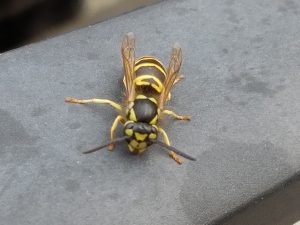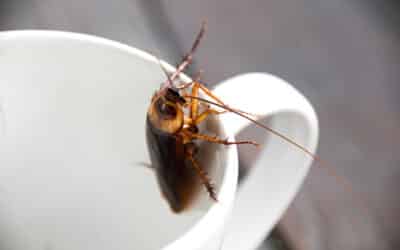
Pest Identification: Yellow Jackets
Yellow Jackets can be aggressive, defending their nests with multiple stings. Homeowners are advised not to attempt treatment, especially if allergic or unsure. Professionals use various methods to eradicate nests, leaving them up during treatment to ensure all members return and die. Post-treatment, there may be some hatching, but without colony support, they die.
Preventive measures include keeping trash away from people during parties, covering food, knocking down forming nests, and monitoring ground nests. Yellow Jacket nests are layered, making it challenging for sprays to reach all layers.
Yellow Jackets can sting multiple times, releasing pheromones to signal a threat. Encountering an aggressive nest requires running far away and seeking enclosed shelter. Ground-nesting yellow jackets construct nests underground, while aerial nests are typically less troublesome in outdoor eating areas. The impact on human health includes repeated stings from female yellow jackets, potential sensitivity to venom, and defensive behavior if nests are disturbed.
If you need hornets, wasps, bees, carpenter bees, and yellow jackets removed from your property, including ground wasp nests, contact the pest control specialists at Ford’s Hometown Services for prompt, professional, and effective hornet, ground wasp, bee, carpenter bee, and yellow jacket elimination.

Buzzwords
Safer Pest Protection: Yard Sprays vs. Flea Collars for Your Dog
Your dog deserves to play safely outdoors, without the threat of pests or harsh chemicals. But between flea collars, topical treatments, and yard sprays, pest control can feel overwhelming, especially if you’re trying to do the right thing for your dog and your...
Why Cockroaches Are So Hard to Eliminate: And What Actually Works
300 million years. That’s how long cockroaches have been crawling the planet. They’ve survived shifting climates, mass extinctions, and even the dinosaurs. So it’s no surprise they can be tough to get out of a home. But what makes these pests so resilient? And what...
Planning a Winter Getaway? How to Avoid Bringing Bed Bugs Home
Holiday and winter travel is supposed to bring back memories, not pests. But between packed suitcases, busy schedules, and hopping from hotels to rentals to spare rooms, it’s surprisingly easy to bring home an unwanted souvenir: bed bugs. Before you cringe, take a...



